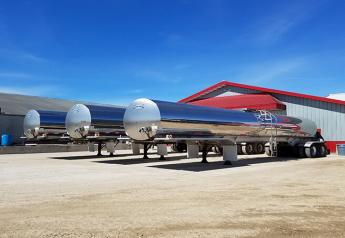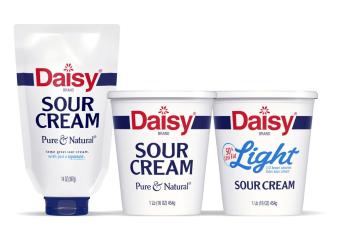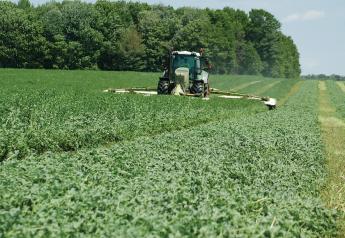Include Your Veterinarian as Part of Your Health Management Team

Zoetis: When your veterinarian visits your dairy, take advantage of his or her knowledge and expertise for more than just herd checks.
"The best step that producers can take to avoid residues is to sit down and work with your veterinarian, work as a team," says Gary Neubauer, DVM, dairy technical services, Zoetis, in a video discussing the benefits of establishing a valid veterinarian-client-patient relationship (VCPR).
Gary Neubauer DVM explains what a valid relationship with a veterinarian entails in a new video. Download it here.
|
Violative drug residues in meat and milk continue to decline. But of those residues still occurring, a lack of veterinary oversight in health management is a likely cause. According to the U.S. Food and Drug Administration, 70% of violative drug residues have no veterinarian involved in the treatment decision or the treatment protocol design.
"Veterinarians bring a wealth of knowledge about using medications correctly to achieve a successful treatment," Dr. Neubauer says. "When your veterinarian visits your dairy, take advantage of his or her knowledge and expertise for more than just herd checks. Establishing a valid VCPR with your veterinarian helps protect all aspects of dairy wellness."
According to the Animal Medicinal Drug Use Clarification Act (AMDUCA), a valid VCPR has three points:
1. A veterinarian assumes the responsibility for making medical judgments regarding the health of the animal, and the client (the owner or other caretaker) agrees to follow the veterinarian’s instructions;
2. The veterinarian has sufficient knowledge of the animals to diagnose medical conditions and prescribe treatment;
3. The veterinarian is acquainted through an examination of the animal(s) or by medically appropriate and timely visits to the client; and
4. The veterinarian is readily available for follow-up in case of adverse reactions or treatment failure.
"When a valid VCPR is established, you can really work with your veterinarian as a part of your health management team," Dr. Neubauer adds. "Regular meetings with your veterinarian, treatment protocol review, employee training and more can all happen with a valid VCPR. Doing this helps protect dairy wellness by managing cow health while avoiding drug residues which assures safe milk and meat from your operation."
To learn more about how to establish a valid VCPR to benefit your dairy, watch this video, brought to you by the Residue Free Guarantee.™*
or more information about working with your veterinarian to reduce violative drug residues on your dairy, visit AvoidResidues.com or visit with your veterinarian or local Zoetis representative. The Milk and Dairy Beef Residue Avoidance Manual from the National Milk Producers Federation also serves as a valuable educational tool and resource as you develop your on-farm best management practices necessary to avoid milk and meat residues.
*Residue Free Guarantee: If you use a Zoetis-branded ceftiofur product according to label indications, and experience a violative ceftiofur milk or meat residue, Zoetis will compensate you for the beef market value of the animal or purchase the tanker of milk at fair market value. You must purchase the product from a Zoetis-approved supplier, use the product according to label indications, have documentation of the product purchase and treatment records, and have conducted training on appropriate use to ensure proper dose and route of administration of the product. Extra-label use as prescribed by a veterinarian is excluded from the guarantee. If you experience a ceftiofur residue violation after following label indications and the above steps, contact Zoetis VMIPS (Veterinary Medical Information and Product Support) at 800-366-5288 to report the situation.
About Zoetis
Zoetis (zo-EH-tis) is the leading animal health company, dedicated to supporting its customers and their businesses. Building on a 60-year history as the animal health business of Pfizer, Zoetis discovers, develops, manufactures and markets veterinary vaccines and medicines, complemented by diagnostic products and genetic tests and supported by a range of services. In 2012, the company generated annual revenues of $4.3 billion. With approximately 9,300 employees worldwide at the beginning of 2013, Zoetis has a local presence in approximately 70 countries, including 29 manufacturing facilities in 11 countries. Its products serve veterinarians, livestock producers and people who raise and care for farm and companion animals in 120 countries.
Zoetis is the proud sponsor with the Smithsonian Institution Traveling Exhibition Service and the American Veterinary Medical Association of the mobile educational exhibit Animal Connections: Our Journey Together. Families visiting the exhibit will explore the vast bonds between people and animals and learn about the important role veterinarians play in protecting animal and human health. For more information, go here.







